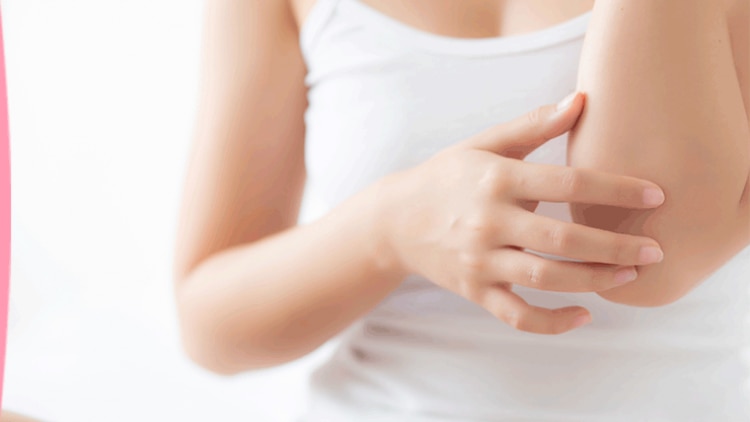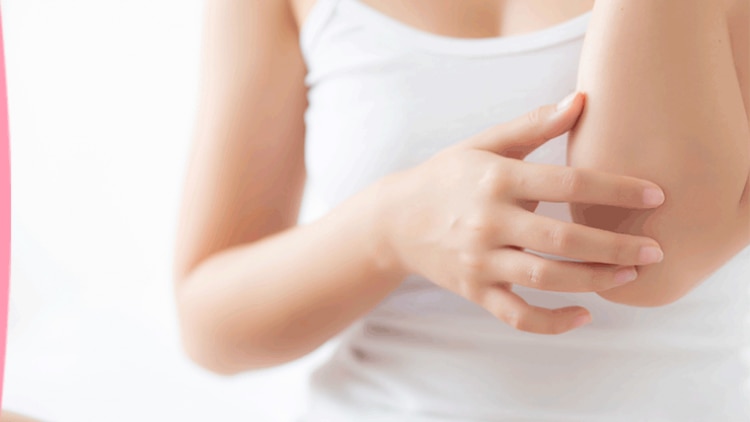Why is my skin dry?
Dry skin is uncomfortable, but it doesn’t have to be that way. Why do some of us have dry skin? Various factors come into play, and we must take a closer look at each one in order to find solutions.
What does it mean to have dry skin?
Dry skin occurs when the skin lacks essential lipids. These lipids enable epidermal cells to bind together and are components of sebum, which forms the hydrolipidic film on the skin’s surface, acting as a natural barrier. Following multiple external aggressions, a lack of lipids can cause the hydrolipidic film to weaken. Now more permeable, this thin layer of protection on the skin is no longer able to perform its role effectively, which is to slow down the evaporation of water in the skin and to prevent the penetration of external agents. The result: the epidermis becomes less supple, less soft, and its appearance changes. It is thus essential to take action in order to restore the comfort that comes with healthy skin.Why do some of us have dry skin?
Dry skin is a skin type in its own right, just like oily or combination skin. As mentioned previously, this dryness is due to a lipid deficiency which causes the water in the skin to evaporate more quickly. However, this can be compounded by aggravating factors such as external aggressions, lifestyle habits, age or even hormonal changes. Hence the need to take stock of the situation: each factor has its own solution.- Low water consumption contributes to skin dehydration and increases transepidermal water loss. It is thus necessary to drink at least 1.5 L of water a day to preserve this natural hydration.
- External elements such as the sun, cold weather, wind, and pollution damage the skin. You must therefore protect your skin with clothing or sun cream. Skin is most vulnerable in the summer and winter periods, during which extra caution is required.
- An overly dry atmosphere, caused by heating or air conditioning, is also harmful. In these dry environments, an air humidifier is a good solution to prevent dry skin.
- Taking long, hot baths or showers is not recommended for people with dry skin. The heat breaks down the skin’s hydrolipidic film. Short, warm showers are therefore preferable.
- Using soaps that are not suited to dry skin can also add to the problem. If overly harsh, soap may damage the skin by eliminating the hydrolipidic film, the epidermis’ natural shield. It is therefore better to opt for soaps with a neutral pH (pH 7), similar to that of the skin, which is between pH 5 and 5.5. A gentler cleansing routine will help reduce the risk of skin sensitivity and dryness. This ritual should be combined with hydrating skin care to replenish the epidermis with water and nutrients, rebuild the skin barrier and make skin soft and supple once again.


